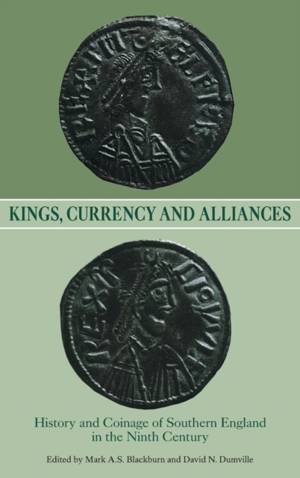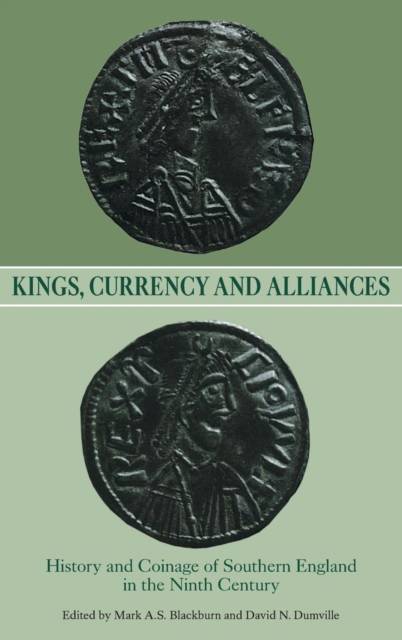
- Afhalen na 1 uur in een winkel met voorraad
- Gratis thuislevering in België vanaf € 30
- Ruim aanbod met 7 miljoen producten
- Afhalen na 1 uur in een winkel met voorraad
- Gratis thuislevering in België vanaf € 30
- Ruim aanbod met 7 miljoen producten
Zoeken
Kings, Currency and Alliances
History and Coinage of Southern England in the Ninth Century
€ 177,45
+ 354 punten
Omschrijving
Historians, numismatists and philologists consider fundamental aspects of 9c political and economic history. The ninth century was a period of upheaval in England, as the kingdoms of Mercia and Wessex vied for supremacy, and East Anglia and Kent sought to regain their independence, with the arrival of the Vikings introducing a further element of unrest. This interdisciplinary collection of papers by historians, numismatists and philologists considers fundamental aspects of the period's political and economic history. Alliances and treaties are a central theme, political and monetary. A radical reassesment of events in London in the later ninth century is presented, prompted by a detailed examination of the numismatic evidence marshalled here along with the written sources; it is argued that the Vikings were not in control of the city prior to Alfred's "reoccupation" in AD 886. The volume includes an illustrated corpus of the coinage of Berhtwulf and another for the middle years of Alfred's reign; moneyers are identified as witnesses to charters, and the forms of their names are analysed according to the Old English dialects they represent. A listing of some 500 single coin-finds forms the basis for a discussion of the nature and extent ofmonetary use in ninth-century England. The late MARK BLACKBURN was Keeper of Coins and Medals at the Fitzwilliam Museum, Cambridge; DAVID DUMVILLE is Emeritus Professor at the University of Aberdeen. Contributors: SIMON KEYNES, THOMAS CHARLES-EDWARDS, JAMES BOOTH, MARK BLACKBURN, LORD STEWARTBY, PAUL BIBIRE, D.M. METCALF, MICHAEL BONSER
Specificaties
Betrokkenen
- Uitgeverij:
Inhoud
- Aantal bladzijden:
- 282
- Taal:
- Engels
- Reeks:
- Reeksnummer:
- nr. 9
Eigenschappen
- Productcode (EAN):
- 9780851155982
- Verschijningsdatum:
- 29/10/1998
- Uitvoering:
- Hardcover
- Formaat:
- Genaaid
- Afmetingen:
- 165 mm x 240 mm
- Gewicht:
- 680 g

Alleen bij Standaard Boekhandel
+ 354 punten op je klantenkaart van Standaard Boekhandel
Beoordelingen
We publiceren alleen reviews die voldoen aan de voorwaarden voor reviews. Bekijk onze voorwaarden voor reviews.










